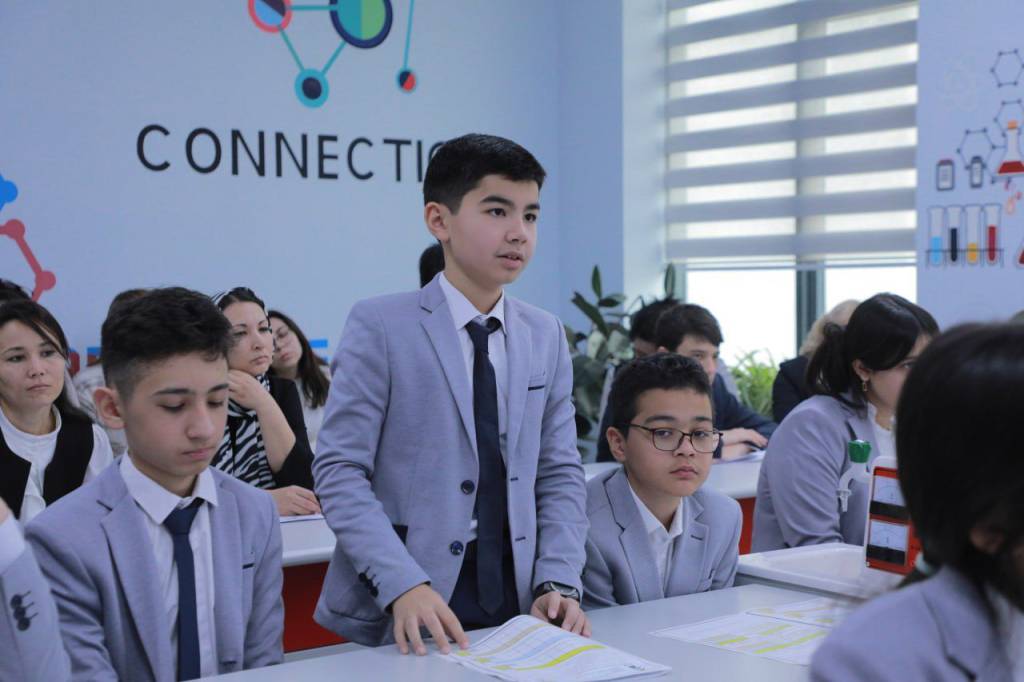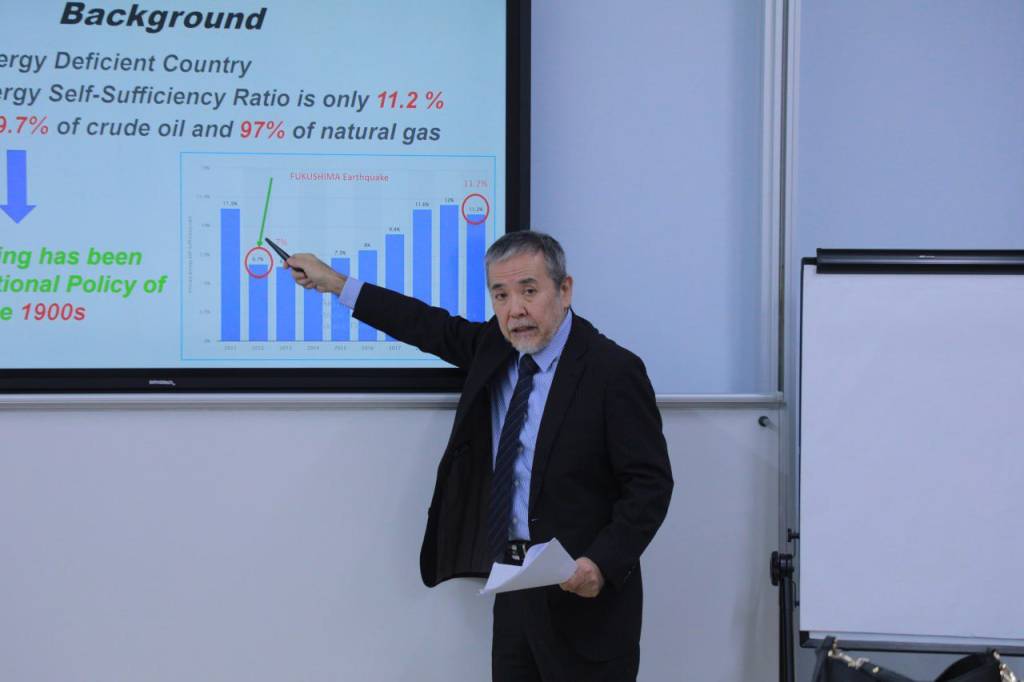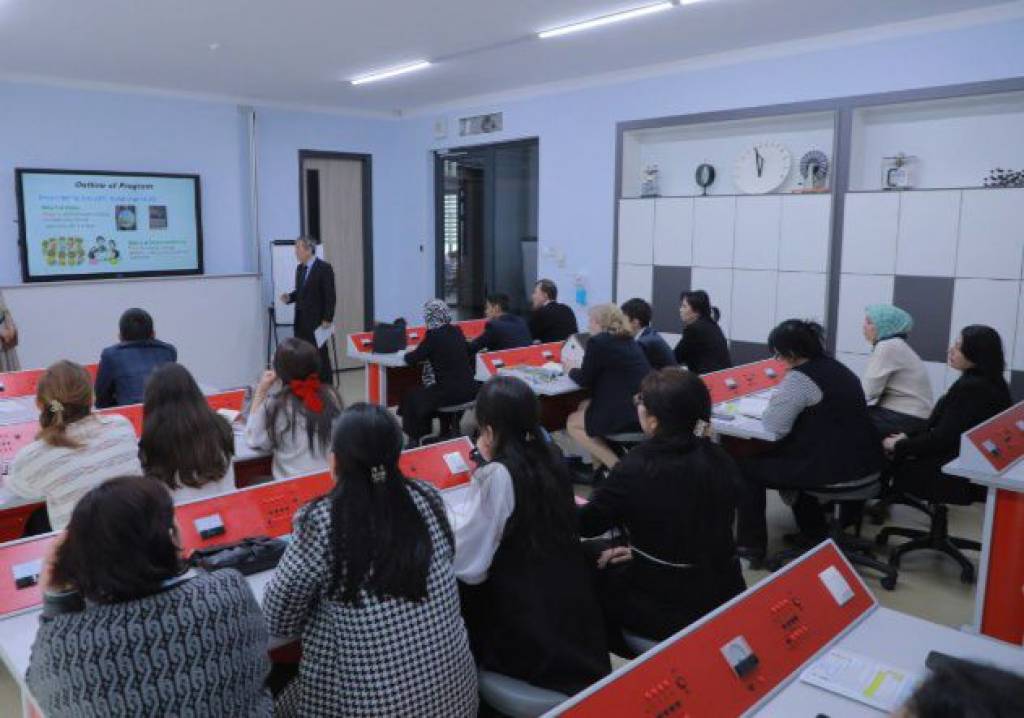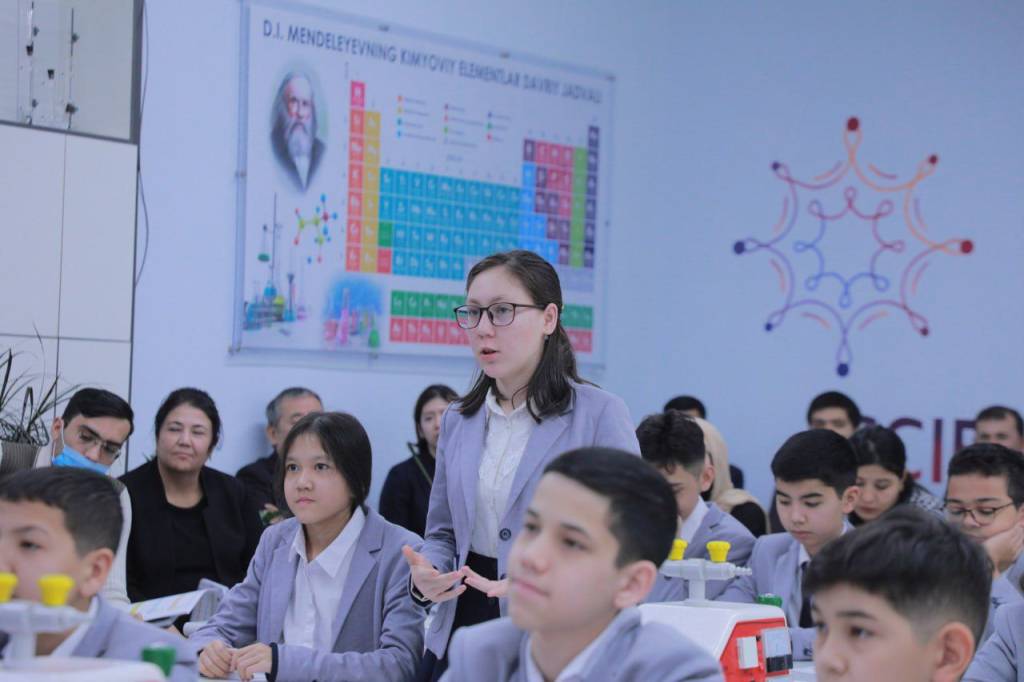In a joint initiative, the Ministry of Preschool and School Education of Uzbekistan, the Ministry of Energy, and the Uzbek-Japanese Youth Innovation Center have unveiled the ENE Kids pilot project aimed at instilling water and electricity-saving habits among the younger generation, the National Information Agency of Uzbekistan reported.

The project, currently involving more than 500 seventh-grade students from 11 selected schools in Tashkent city and the Syrdarya region, seeks to educate children about the efficient use of energy resources while promoting a sustainable lifestyle.
The ENE Kids project aims to develop essential skills in students related to energy and water conservation, emphasizing the positive impact such practices can have on the country as a whole. By engaging students at an early age, the initiative not only contributes to reducing water and electricity consumption but also fosters a sense of environmental responsibility among the youth.

This project aligns with global efforts to address environmental challenges, and it is particularly significant for Uzbekistan as it takes steps to tackle its energy landscape.
As part of the initiative, Japanese expert Yuki Yanagida conducted specialized training sessions for teachers in the participating schools. These sessions are designed to equip educators with the knowledge and tools needed to effectively communicate the importance of resource conservation to their students.

The involvement of the younger generation in such initiatives is crucial, as it not only raises awareness but also empowers the youth to actively contribute to environmental solutions. The ENE Kids pilot project exemplifies the commitment of Uzbekistan to fostering a sustainable future through education and practical engagement.
The Ministry of Energy of the Republic of Uzbekistan plays a pivotal role in supporting and regulating such initiatives. Established by Presidential Decree No. UP-5646 on February 1, 2019, the Ministry is responsible for overseeing the entire energy sector, including electric and thermal energy, coal, oil, gas, and their products. Among its core tasks are the regulation of the energy sector, implementation of production-sharing agreements, attraction of private capital for energy resource exploration and production, development of public-private partnerships (PPPs), and improvement of tariff policies to enhance competitiveness and diversify energy production.

Notably, the Ministry of Energy is the authorized body responsible for implementing the unified state policy for Renewable Energy Sources (RESs), underlining Uzbekistan's commitment to sustainable and environmentally friendly energy solutions.
In tandem with these efforts, Uzbekenergo, a key player in the country's energy landscape, has undergone significant restructuring. As part of the transition to modern methods of electricity production, transportation, distribution, and sales, three new Joint Stock Companies have been established based on the Uzbekenergo model: the Thermal Power Plants company, National Electric Networks of Uzbekistan, and Regional Electric Networks.
Follow Daryo's official Instagram and Twitter pages to keep current on world news.
Comments (0)